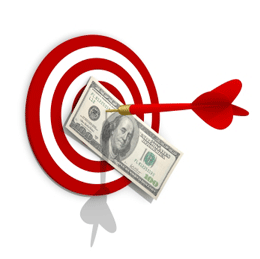I often think about other people who trade options as much as I do all day. I wonder if they use the best discount brokers that area available and most importantly, how do they keep records of all their trade?
The point of record keeping in the complex profession of option trading in my opinion is just about the most important thing there is. How can you know if you're successful in trading options if you don't know your profits and losses per stock, per trade type, per day, per month for a whole year? For me the answer has always been a combination of 3 methods. The first method of course would be to use a spreadsheet to keep a current total of all stocks I own. I keep another spreadsheet to record all my expenses for every month, and this is vital to know the grand total of all income sources and expenses including trading fees.
The most important tool I use for all my stock and option trading is Microsoft Access. Using the Access database is the perfect tool for recording each stock or option trade. For options I have a column that represents the number of contracts for each option trade and for options one contract represents 100 shares of stock. If I buy and option contract then the contract number would be negative and if I sell then the contract number would be positive. The other columns in the table would be for the price of the option and the trade fee, so to calculate the total for any option trade would be (100*Price*Contract) - Trade fee. Using SQL (Structured Query Language) has allowed me over the years to display very important statistics and reports to let me know how I am doing for any stock or option trade type or strategy and summarizing performance by stock, option, month, day or year has been very easy to accomplish.
The most important point is how can you really know how you are doing if you don't keep records? You might get a stock put to you and then sell it at loss, but then know that overall because of the option premium you received for selling the PUT that actually you made a profit on that trade overall. Without keeping records, you would never know how you really did for any specific complex option trade.
With any profession record keeping is vital to know how you are really doing, but with the difficult profession of option trading, keeping records is just about the most important thing you can do.
Option Trader, Biographer, Screenwriter, Retired IT professional.
The point of record keeping in the complex profession of option trading in my opinion is just about the most important thing there is. How can you know if you're successful in trading options if you don't know your profits and losses per stock, per trade type, per day, per month for a whole year? For me the answer has always been a combination of 3 methods. The first method of course would be to use a spreadsheet to keep a current total of all stocks I own. I keep another spreadsheet to record all my expenses for every month, and this is vital to know the grand total of all income sources and expenses including trading fees.
The most important tool I use for all my stock and option trading is Microsoft Access. Using the Access database is the perfect tool for recording each stock or option trade. For options I have a column that represents the number of contracts for each option trade and for options one contract represents 100 shares of stock. If I buy and option contract then the contract number would be negative and if I sell then the contract number would be positive. The other columns in the table would be for the price of the option and the trade fee, so to calculate the total for any option trade would be (100*Price*Contract) - Trade fee. Using SQL (Structured Query Language) has allowed me over the years to display very important statistics and reports to let me know how I am doing for any stock or option trade type or strategy and summarizing performance by stock, option, month, day or year has been very easy to accomplish.
The most important point is how can you really know how you are doing if you don't keep records? You might get a stock put to you and then sell it at loss, but then know that overall because of the option premium you received for selling the PUT that actually you made a profit on that trade overall. Without keeping records, you would never know how you really did for any specific complex option trade.
With any profession record keeping is vital to know how you are really doing, but with the difficult profession of option trading, keeping records is just about the most important thing you can do.
Option Trader, Biographer, Screenwriter, Retired IT professional.






























